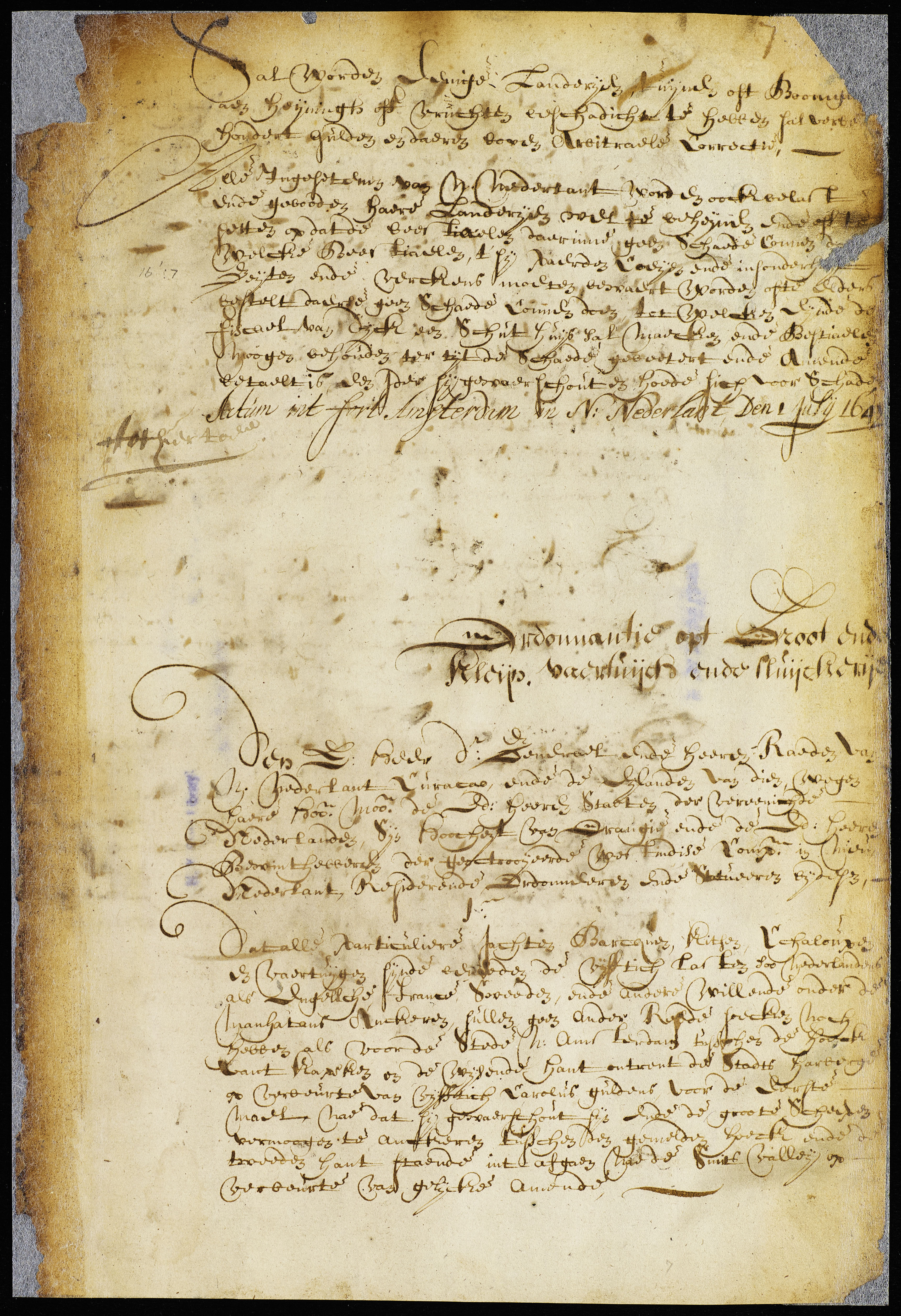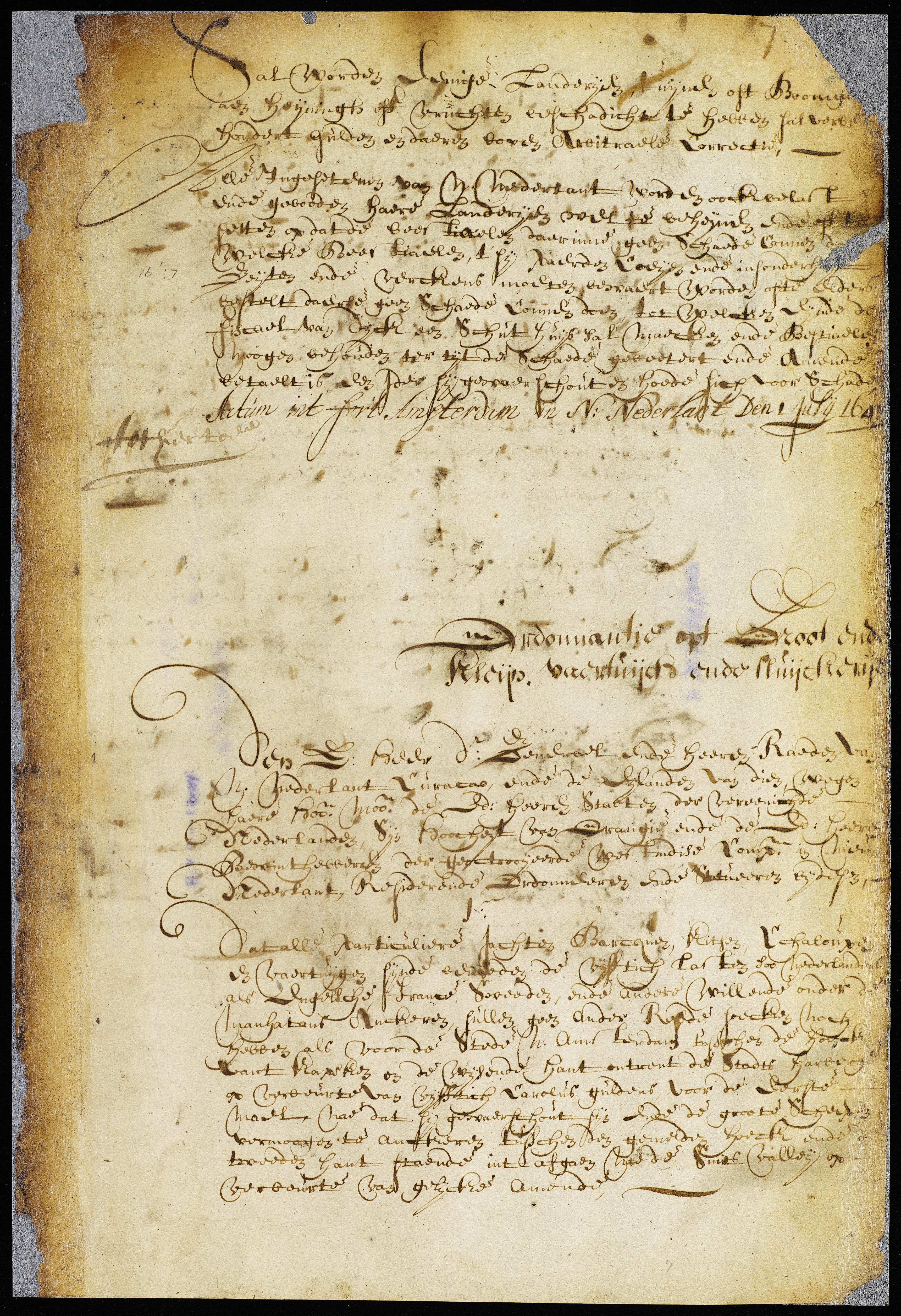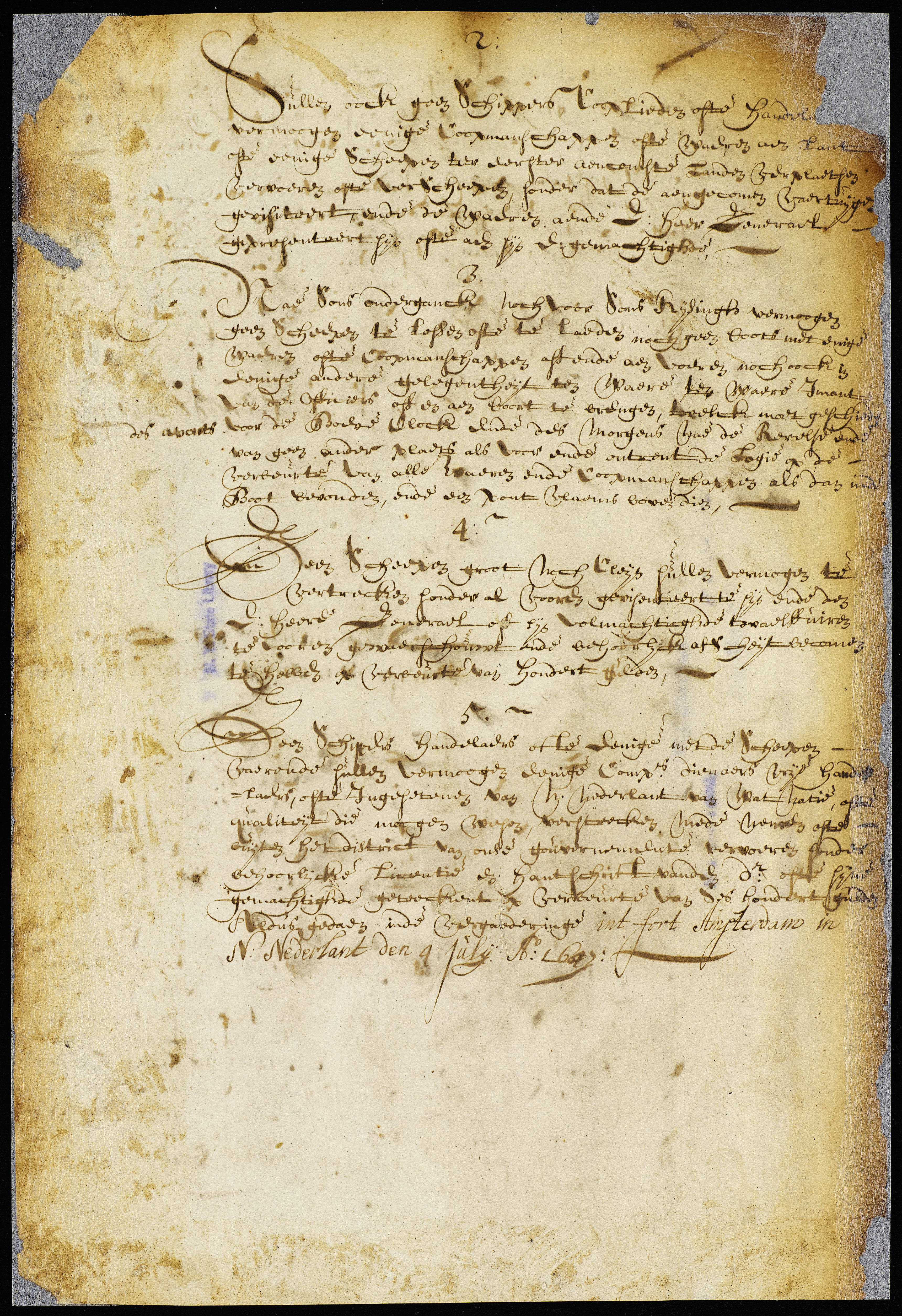The honorable lord director general and the lord councilors of New Netherland, Curacao and the islands thereof, residing in New Netherland, on behalf of their High Mightinesses the honorable lords States of the United Netherlands, his Highness of Orange and honorable lord directors of the Chartered West India Company, do hereby proclaim and order:
1.
That all private yachts, barks, ketches, sloops and vessels under fifty lasts, whether Dutch, English, French, Swedish or others, wanting to anchor at Manhattan, shall not seek or have any other roadstead than before the city of New Amsterdam, between the point of the Kapsken [1] and the guide-board near the City Tavern, under forfeiture of fifty Carolus guilders for the first time after they have been warned; and the large ships may anchor between the aforesaid point and the second guideboard, standing on the way to Smits Valley, under forfeiture of the same amount.
2.
Also, no skippers, merchants or traders, or ships at their first arrival, may put ashore, remove, transport or transship any merchandise or goods, without the arriving vessels being inspected and the goods reported to the honorable lord general or his honorable deputy.
3.
After sunset and before sunrise no ships may discharge or load, or send off or receive any boat with goods or merchandise, or under any other circumstance, except to convey one of the officers on board or ashore, which must be done before the curfew bell in the evening and after reveille in the morning, and from no other place than in front of or near the shed, under forfeiture of all goods and merchandise found in the boat and also one pound Flemish.
4.
No ships, large or small, shall be allowed to depart without first being inspected and twelve hours’ previous notice having been given to, and proper clearance received from the honorable lord General or his deputy, under forfeiture of one hundred guilders.
5.
No skippers, traders or anyone sailing with the ships shall be allowed to conceal, take along or transport beyond the jurisdiction of our government any of the Company's servants, free traders or inhabitants of New Netherland, no matter of what nation or capacity they may be, without a proper pass signed by the dirctor or his deputy, under forfeiture of six hundred guilders.
Thus done in council at Fort Amsterdam in New Netherland, the 4th of July 1647.[2]




